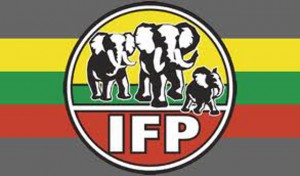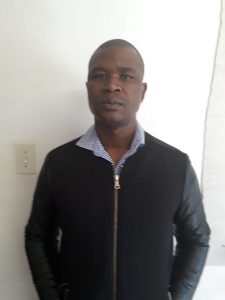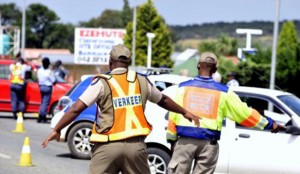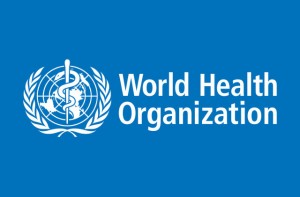MOTION OF CONDOLENCE ON THE PASSING OF THE HON. DR MARIO GR ORIANI-AMBROSINI MP
TRIBUTE BY THE HON. PRINCE MANGOSUTHU BUTHELEZI MP PRESIDENT OF THE INKATHA FREEDOM PARTY
National Assembly: 19 August 2014
Honourable Speaker, Honourable colleagues;
Thank you for the many kind words that have been spoken to me, to my Party and to the family of the Hon. Dr Mario Oriani-Ambrosini since his passing on Saturday. We have been flooded with tributes to a man who clearly made a deep impression on many lives.
From citizens who appreciated his fight on their behalf against the Secrecy Bill, to His Holiness the Dalai Lama on behalf of the Tibetan people; from service officers in Parliament, to Ambassadors, journalists, students and lovers of freedom everywhere; tributes and words of thanks have abounded for the good Doctor.
We in the IFP feel this loss deeply. Dr Ambrosini was a national treasure, but one firmly rooted in the Inkatha Freedom Party. His loyalty to me and to our Party never wavered. This was his home. We were family. Today, I weep for the loss of a son.
When the history of the Fourth Parliament is written, it will no doubt be said that the Fourth Parliament of South Africa was an Ambrosini Parliament. It was characterised, and often even shaped, by his actions.
At the first sitting of the Fourth Parliament, the Hon. Dr Ambrosini rose for the first time in this House; but not to deliver a maiden speech or a Member’s Statement. He rose on a massive Point of Order, which he had given to the Speaker in advance, challenging the validity of the Rules of Parliament.
That set the scene for a three year court battle, pitting the principled conviction of one man against the established authority of the Speaker of the National Assembly, no less than the son of Mr Walter Sisulu. The Hon. Dr Ambrosini acted for no financial gain, and certainly at the risk of tremendous financial loss. But he acted on principle. And, when it came to principle, Dr Ambrosini was a pit bull.
Many feared failure and advised him to surrender. But he saw it through all the way to the Constitutional Court and won for every Member sitting in this House today, and for every Member who will sit in these seats in the future, the right to introduce legislation in the National Assembly. He kicked open a door for all of us to do our jobs better, and indeed to do our jobs.
The last sitting of the Fourth Parliament was dedicated to a debate on Cancer treatment, which the Hon. Dr Ambrosini had called and led. He was already months into his own journey of fighting terminal Lung Cancer, diagnosed out of the blue in April 2013. This, he said, was not a fight
he chose. It chose him. But true to character, he drew his own battle lines and took on this disease not only for his own survival, but with the goal of destroying the grip of Cancer entirely, for everyone.
He studied and researched, engaging the best minds, and didn’t shy away from using his own body for experimental treatment wherever he felt there was plausible science to support hope. What he sought was an alternative treatment to the mainstream, for he realised that the current scientific paradigm around Cancer had been proven wrong, by its failure to save millions of lives.
Did he succeed? He extended his life far beyond the prediction of doctors. He maintained quality of life when he should already have been dead. And he maintained clarity of mind right up to the end.
He was able to make his own decisions, consciously and fully cognisant of all the consequences. He was able to spend quality time with friends and loved ones. His memory remained exceptional, and his thoughts and emotions remained at his own command.
Countless families have watched their loved ones suffer the ravages of conventional Cancer treatment, unable to communicate or share quality time in the last days and weeks. I believe that they might rightly say, yes, he succeeded.
He also succeeded in showing us the way to another door that needs to be kicked open, and he provided the method to do it. Through his Medical Innovation Bill he showed us how to help all these families, and all the families who will endure this tragedy in the years to come, by empowering them to choose their own treatment and empowering the best medical and scientific minds to research and try alternatives.
His death was not a failure. He waged the most courageous battle anyone could and he displayed bravery beyond measure.
Over the past three days, out of respect for Dr Ambrosini’s family, I made no statement about the circumstances of his passing. Because of my close friendship with Dr Ambrosini, the family informed me on Saturday morning of the circumstances. However, this was not a Party matter. It
was for the family to determine their own timing. Dr Ambrosini’s wife, Carin, has now agreed that I speak openly as his life-long friend and leader.
It is with deep pain that I make this statement. In a characteristically clearly-considered and enunciated decision, on Saturday morning the 16th of August 2014, Mario Gaspare Oriani-Ambrosini decided to end his long and hard fought battle with Cancer, and the unbearable pain and suffering he had to endure towards the end.
There was no further hope of cure, remission or improvement. He had tried every alternative, including conventional treatments, and was faced with the imminent failure of his body. In many respects, it had already failed, including his lungs, his mobility and his eyesight. He was not able to eat and was dependent on an oxygen machine.
Many times over the past few weeks, Dr Ambrosini told his closest friends that his greatest source of suffering was the knowledge that his family were facing a harrowing journey to his inevitable death. Knowing him as well I did, I believe that his decision was made out of compassion.
In his last moments, Dr Ambrosini sent a message to a few of his closest friends, describing his physical condition and saying farewell. He wrote –
“I am dying in peace and serenity surrounded by the love of my family and friends. I am dying at a time when I feel ready. I feel in the grace of God and part of His passion and in that sense relieved and saved. My last thoughts are with my child and I hope you may give him some of the love and guidance I would like him to receive. Thank you for your friendship and love which I feel with me at this time.”
Surely this was an act of compassion and courage. Certainly it was an act of defiance. He could not choose the fact of his death, but he chose the manner and the time. It was entirely in character, for Dr Ambrosini often said “I am the captain of my ship and of the master of my destiny”.
For a few days to come, Dr Ambrosini’s death will be spoken about and the tragedy of the circumstances may overshadow thoughts about his life. But I know that, with time, this sad ending will hardly be remembered for it will be outweighed beyond measure by the memory of his remarkable life.
The Fourth Parliament began and ended with bold moves by the Hon. Dr Mario Ambrosini, and the chapters between were filled with dramatic and important initiatives.
Let us honour him for founding of the Parliamentary Institute of South Africa, with Dr Zola Skweyiya, Inkosi Patekile Holomisa, Professor Kader Asmal, Dr Wilmot James and other outstanding leaders. Let us remember that he was the main engine behind the recurring actions to vindicate the wrongful denial of a visa to His Holiness the Dalai Lama, which brought to Parliament many members’ statement and the Torch of Freedom.
He was the kingpin of the cooperation amongst opposition parties, which led to the Collective for Democracy. He worked relentlessly to make it a reality, from the design of the logo to the organisation of parliamentary rallies.
He became the champion of the struggle for freedom of the press and a warrior against the Secrecy Bill. He brought to South Africa the first filibuster, which stopped the passing of the Bill for 5 months, enabling civil society to reconstitute its action and refocus its pressures.
He created the political space which enabled Black Tuesday to occur. He singlehandedly conducted many battles through the ideology of libertarianism. As a matter of principle, he opposed the provocation of forcing the labelling of goods coming out of the occupied territories in Israel.
He was voted “Parliamentarian of the Year” in 2013 by the Sunday Times, and the “Best Dressed Parliamentarian” by GQ magazine.
But among his many accolades, the one he held dearest was his appointment by the Speaker to the Wine Cellar Committee, which, as he used to say, was the only position in Parliament which required dedicated skills and knowledge.
All this was just the tail end of his life.
He will be remembered as one of the key negotiators in our transformation from Apartheid to democracy. I admired his skill in negotiations and I want to honour him for what he achieved, by remembering just one part of it. Dr Ambrosini’s guidance and mastery of constitutional law enabled the IFP to secure provinces for South Africa. He conducted a complex negotiating game, which we won.
In September 1993, the Interim Constitution was finalised without the inclusion of provinces, but provision was made for a Commission for Rationalisation within the Constitutional Assembly which would have decided within two years whether we should have provinces, states or regions.
In the meantime, it was agreed that the process of rationalisation of the powers of existing provinces, TBVC states and self-governing territories would all be centralised, as they were.
We forced provinces to exist in the interim period, which the ANC agreed to because the rationalisation process was centralising all powers within the same timeframe of two years. Therefore, the list of powers given to provinces seemed meaningless, as they were mere promises which the Constitutional Assembly could have taken away.
Dr Ambrosini negotiated the list of powers with Mr Valli Moosa, whose mathematical mind identified that there was no problem in giving as much as Dr Ambrosini wanted because it was all going to the central government in the interim and could have been taken away by the Constitutional Assembly.
In the next stage of negotiation, we forced the adoption of the all-important constitutional principle that the power of provinces could not be diminished.
By the same token, together with Prof. Willem Olivier, Dr Ambrosini drafted the Ingonyama Trust Act which took the bits and pieces of traditional land in KwaZulu that remained under the King and Amakhosi
after our dispossession out of the process of rationalisation, which would have led to it becoming State land, and placed it under a regionally-based Trust, under the control of the King and his Amakhosi. This was my last act as we wound up the KwaZulu Legislature.
Later, as Advisor to the Minister of Home Affairs, Dr Ambrosini did the work of two. With Prof. Kobus van Rooyen, he redrafted the Film and Publications Control law to eliminate censorship; a censorship which is now being reintroduced. He was the grand architect of the reform of the
immigration system, in terms of providing South Africa with the skills our country needed.
This was a life too vast to capture in so short a time. Let me therefore leave his many achievements aside for now, and speak about his character.
We all know of his brilliant mind, his intellect and talent, both as a constitutional lawyer and a Member of Parliament. Many of us know that Dr Ambrosini was a complex man, given both to fiery displays of anger and overwhelming acts of magnanimity.
Those of us who were privileged to know him well, know that he was both gentle and fierce, compelling and kind. He had a wonderful sense of humour. He was deeply loyal, and cared profoundly for his friends, always seeking their best interests. He was an old-style gentleman, noble and brave.
I count it the greatest privilege of my life to have had Dr Mario Ambrosini at my side, as my friend and advisor. I therefore ask only what he asked himself; that in the years to come, those of us who were blessed with his friendship will find ways to bless his son. Let us tell Luke what a wonderful man his father was. Luke, your father was South Africa’s greatest adoptive son.
On behalf of my Party and my family, I extend condolences to the family of Dr Mario Ambrosini. I thank them for all that they did for our warrior and friend. May they now take comfort from these words, from 1 Thessalonians 5 verse 9 to 11 –
“For God did not appoint us to wrath, but to obtain salvation through our Lord Jesus Christ, who died for us, that whether we wake or sleep, we should live together with Him.”








